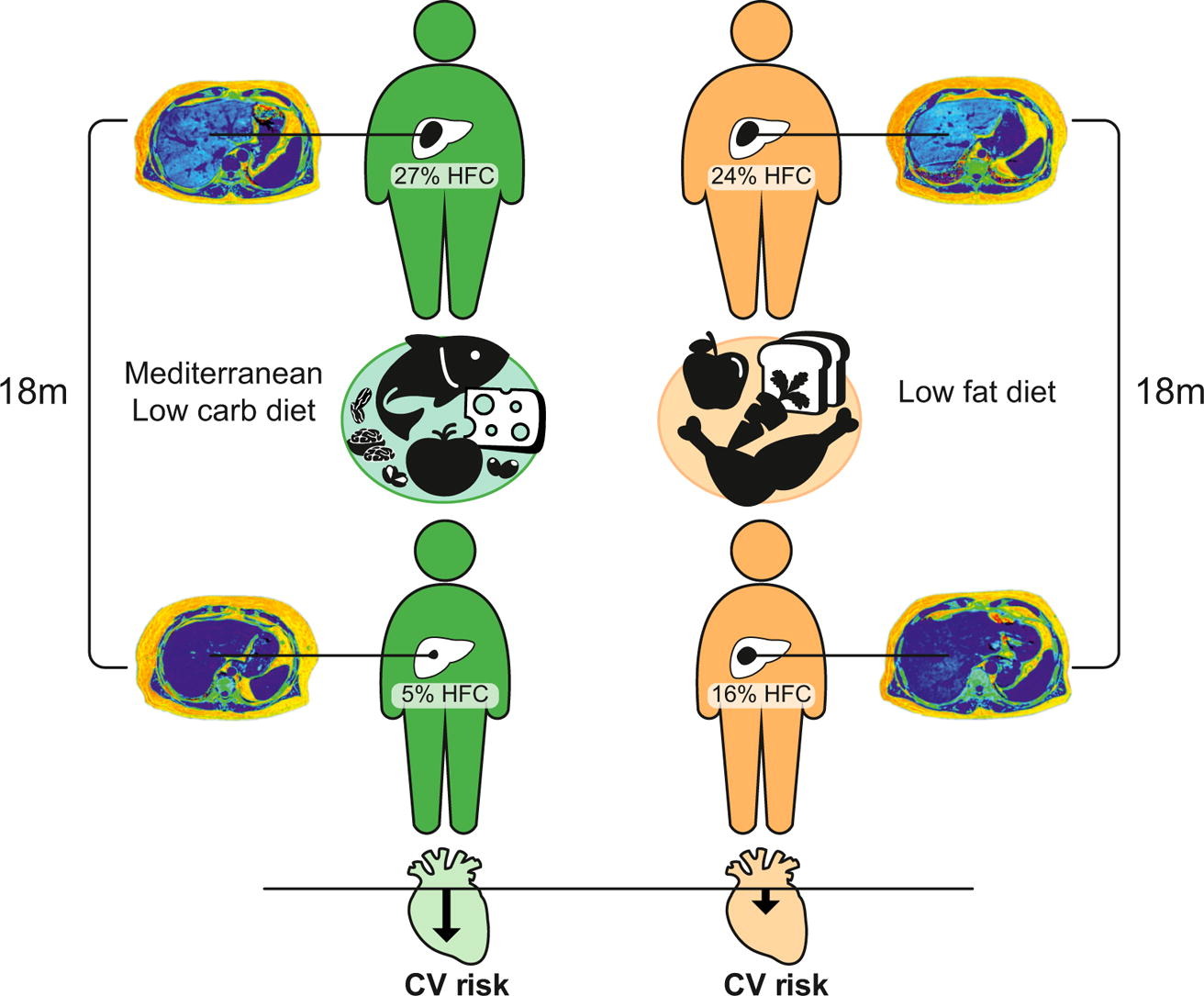No Products in the Cart
Reducing fat in the liver, rather than simply losing weight, is key to lowering health risks associated with obesity, say Israeli researchers.
As if we did not already have ample proof that the Mediterranean diet is a driver of healthy longevity, a new study published in the Journal of Hepatology reveals another astounding benefit: a low-carb Mediterranean diet is more effective than other low-fat diets in reducing hepatic (liver) fat content.
Furthermore, reducing liver fat – not just visceral fat in the abdomen and around internal organs — is more important than previously believed in lowering health risks associated with obesity over the long term, say the researchers from Ben-Gurion University, Soroka University Medical Center, Tel Aviv University and the Nuclear Research Center Negev (all in Israel) and from Leipzig University in Germany and Harvard University in the United States.
Their study supports the emerging understanding that excess liver fat is not merely a sign of health risks associated with obesity, including cardiovascular disease and diabetes, but is likely also a cause.
The researchers, headed by Prof. Iris Shai of BGU, used MRI technology and other tools to measure and map the effects of different diet regimes on body-fat deposits in 278 overweight people over 18 months.
Comparing the results of subjects who reduced calorie intake through a low-carb Mediterranean diet or a low-fat diet, they saw that both groups lost a moderate amount of weight – especially those who also were put on a moderate exercise regimen.
But more significant reductions in the measurable risk of heart disease were found for those on a Mediterranean diet emphasizing vegetables, walnuts, legumes and moderate amounts of fish and poultry.

Unprecedented in its length and breadth, the study is believed to break significant ground toward a better understanding of the dynamics of weight loss and disease prevention, as well as in the use of MRI imaging to measure fat deposits.
“High hepatic fat content is associated with metabolic syndrome, type 2 diabetes mellitus, and coronary heart disease,” the authors conclude. “In the 18-month intervention trial, a Mediterranean/low-carbohydrate diet induced a greater decrease in hepatic fat content than a low-fat diet, conferring beneficial health effects that were beyond the favorable effects of visceral fat loss.”
They suggest that rather than focusing on weight loss only, a low-cal Mediterranean diet could be used as a specific approach for managing non-alcoholic fatty liver disease.
Currently the group is completing an additional clinical trial to see whether a “green” Mediterranean diet (rich in polyphenols derived from green plants) has an advantage in influencing liver fat and other body systems such as the brain and microbiome.
This article was retrieved from Israel21c. Click here to access the original article